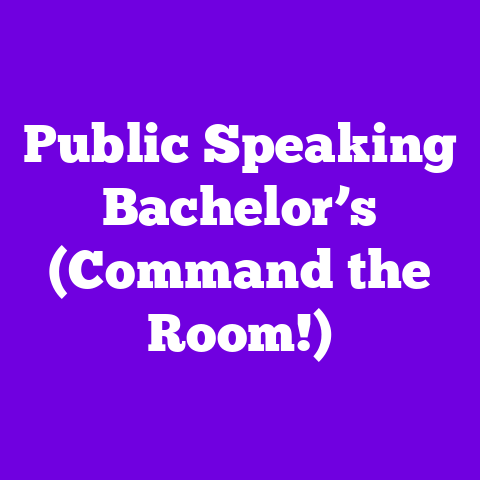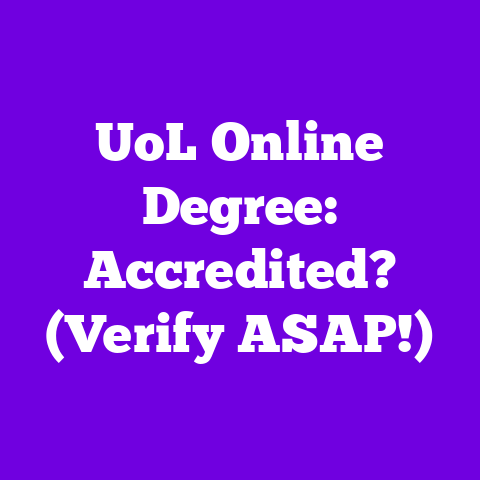H1B Visa: Is a Master’s Degree Worth It? (Before Cap!)
Let’s dive deep, particularly with 2025 on the horizon and the ever-present cap looming.
Did you know that individuals with advanced degrees from U.S. institutions have a significantly higher chance of securing H1B visas?
It’s true!
According to USCIS data, applicants with master’s degrees are more likely to get their H1B approved. This is what we’re going to unpack.
Section 1: Overview of the H1B Visa Program
Okay, so what is an H1B visa? Simply put, it’s a non-immigrant visa that allows U.S. employers to temporarily employ foreign workers in specialty occupations.
These occupations generally require a bachelor’s degree or its equivalent. Think software engineers, architects, doctors, and accountants.
The H1B visa is super important for the U.S. job market because it allows companies to access specialized talent they might not find domestically.
It also brings diverse perspectives and skills to the table, boosting innovation and growth.
The application process can be a bit complex.
Employers need to file a petition with USCIS (U.S. Citizenship and Immigration Services) on behalf of the prospective employee.
They need to prove that the job qualifies as a “specialty occupation” and that the employee meets the necessary qualifications.
Eligibility criteria include:
- Having a bachelor’s degree or its equivalent.
- Holding a state license (if required for the occupation).
- Possessing work experience equivalent to a degree.
Now, here’s the kicker: the cap.
Each fiscal year, there’s a limit on the number of H1B visas issued. Currently, the regular cap is 65,000 visas, with an additional 20,000 visas reserved for those with a U.S. master’s degree or higher.
This is often referred to as the “master’s cap.”
The significance of the cap is huge. It means there’s a lottery system in place.
If USCIS receives more petitions than available visas (which it almost always does), they randomly select petitions to be processed.
This lottery system makes the H1B process incredibly competitive and unpredictable.
As for current trends in 2025, while precise numbers are always evolving, we can expect similar levels of high demand.
In recent years, we’ve seen USCIS receiving hundreds of thousands of petitions for those limited spots.
This emphasizes the importance of having a competitive edge.
Section 2: Educational Requirements for H1B Visa Applicants
Let’s break down the education requirements.
The minimum requirement for most H1B positions is a bachelor’s degree or its equivalent.
However, many employers prefer candidates with advanced degrees, especially for more specialized or senior roles.
Now, what’s the difference in application outcomes between those with a bachelor’s and those with a master’s?
Well, the “master’s cap” gives those with U.S. master’s degrees a distinct advantage.
They’re first considered under the 20,000-visa master’s cap.
If they aren’t selected there, they then go into the general pool of 65,000 visas, increasing their chances.
So, statistically, you’re looking at a higher probability of selection with a master’s.
Which fields of study have higher demand for H1B visa holders?
STEM fields (Science, Technology, Engineering, and Mathematics) are consistently in high demand.
This includes computer science, engineering (especially electrical, mechanical, and computer engineering), data science, and related fields.
Healthcare professions, such as doctors and specialized nurses, also see strong H1B demand.
Business-related fields like finance, accounting, and business analytics are also popular, though they often face more competition.
Section 3: The Value of a Master’s Degree
Beyond the H1B, what are the general benefits of a master’s degree?
Think about it: higher earning potential, more specialized job opportunities, and faster career advancement.
A master’s degree demonstrates a deeper level of knowledge and commitment to your field, making you a more attractive candidate to employers.
Let’s talk numbers.
Data consistently shows that H1B visa holders with master’s degrees earn significantly more than those with bachelor’s degrees.
According to data from the U.S. Department of Labor, the median salary for H1B workers with a master’s degree is often 10-20% higher than those with a bachelor’s in similar roles.
This difference can be even greater in high-demand fields like software engineering or data science.
But it’s not just about the money, right?
Choosing the right field of study is crucial.
A master’s degree in a high-demand field like artificial intelligence or cybersecurity will naturally improve your H1B prospects compared to a field with less demand.
Research the job market, talk to professionals in your field, and carefully consider your interests and skills before choosing a program.
Section 4: Case Studies and Real-Life Examples
Let’s get real. I’ve worked with countless students who’ve successfully navigated the H1B process after getting their master’s.
Take, for example, Sarah, who came to the U.S. from India to pursue a master’s in computer science.
After graduating, she landed a job at a tech company. Her master’s degree not only helped her secure the job but also significantly increased her chances of getting the H1B.
Because she had a U.S. master’s, she got the benefit of the “master’s cap,” which ultimately led to her H1B approval.
Then there’s David, who pursued a master’s in electrical engineering.
He told me that his advanced degree gave him a deeper understanding of the field and made him a more competitive candidate during his job search.
He also emphasized that his master’s curriculum included practical, hands-on projects that were highly valued by employers.
These experiences underscore the importance of not just getting a master’s, but getting one that’s relevant and provides you with valuable skills.
I spoke to one professional who navigated the H1B visa process after obtaining his master’s degree. Here’s what he said:
“Getting my master’s was a game-changer. It opened doors to more senior roles and made my H1B application much stronger. The advanced knowledge and skills I gained were invaluable.”
Their career paths often show a trajectory of growth and increased responsibility.
The advanced degree not only influences the visa outcome but also sets them up for long-term success in their careers.
Section 5: Employer Perspectives on Advanced Degrees
How do U.S. employers view master’s degrees when hiring H1B candidates?
Generally, employers see a master’s degree as a strong indicator of competence and expertise.
It shows that a candidate has invested time and effort into deepening their knowledge and skills.
In technical fields like STEM, advanced degrees are often considered essential, especially for roles that require specialized knowledge or research capabilities.
I’ve spoken with hiring managers at several tech companies, and they consistently emphasize the value they place on candidates with master’s degrees.
One hiring manager at a software company told me:
“We often prefer candidates with master’s degrees because they tend to have a more in-depth understanding of the technology and are better equipped to handle complex projects.”
Another HR professional at an engineering firm noted:
“A master’s degree demonstrates a candidate’s commitment to continuous learning and their ability to adapt to new challenges, which are essential qualities in our industry.”
Data from employer surveys also supports this trend.
A recent survey found that companies are more likely to sponsor H1B visas for candidates with master’s degrees, especially in fields like computer science and engineering.
Section 6: The Future of the H1B Visa and Education
What does the future hold for the H1B visa program and its impact on education?
It’s tough to say for sure, as policies can change.
However, there’s been ongoing discussion about potential reforms to the H1B program, including changes to the lottery system, increased scrutiny of applications, and higher wage requirements.
These changes could have significant implications for international students and professionals planning to apply for H1B visas.
For example, if the lottery system is reformed to prioritize higher-skilled workers or those with advanced degrees, it could further incentivize pursuing a master’s.
Proposed policy changes could also affect the fields of study that are in high demand.
If the government prioritizes certain industries or technologies, it could shift the focus of H1B visas and influence the educational paths that international students choose.
Looking ahead, I think we’ll see continued growth in fields like artificial intelligence, data science, cybersecurity, and biotechnology.
These fields are likely to drive demand for H1B visas and create opportunities for individuals with advanced degrees.
Higher education institutions will need to adapt to these trends by offering programs that align with the future needs of the U.S. labor market.
This might mean creating more specialized master’s programs, offering more hands-on training, and fostering closer partnerships with industry.
Conclusion
So, is a master’s degree worth it for prospective H1B visa applicants in 2025?
The answer, as you might have guessed, is “it depends.”
A master’s degree can provide a significant advantage in the H1B application process, particularly through the “master’s cap.”
It can also lead to higher earning potential, more job opportunities, and faster career advancement.
However, individual circumstances, industry demands, and the specific field of study all play a crucial role in determining the worth of a master’s degree.
If you’re considering pursuing a master’s degree to improve your H1B prospects, I encourage you to carefully research your options, consider your interests and skills, and talk to professionals in your field.
Call to Action
Take some time to evaluate your educational path.
Think about the evolving landscape of the H1B visa program and the potential benefits of pursuing a master’s degree in your respective field.
Your future is worth the investment!






